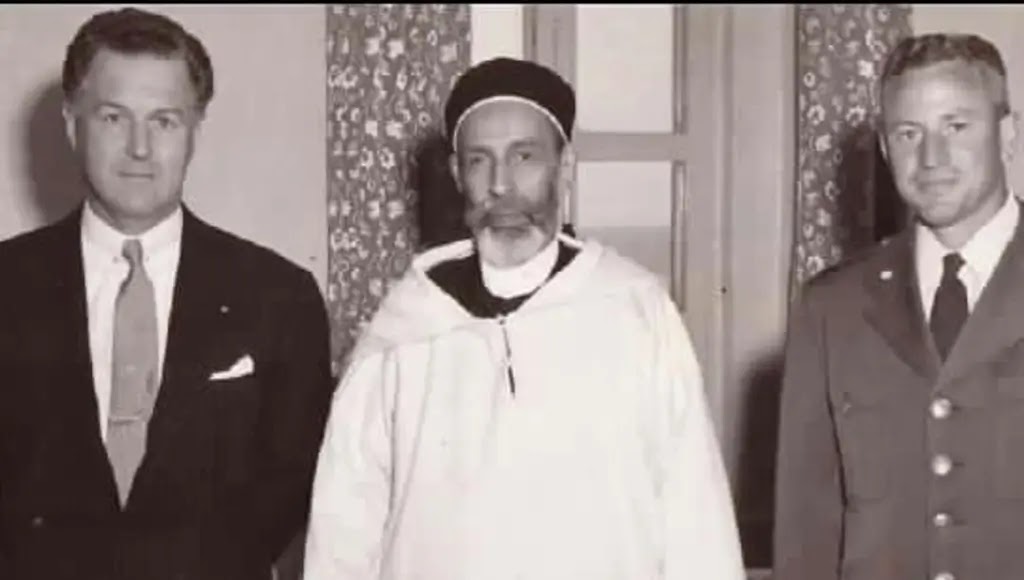On December 24, 1951, Libya achieved full independence after more than 33 years of Italian occupation and was established as the "Kingdom of Libya" under King Muhammad Idris bin Muhammad al-Mahdi al-Senussi. This system remained in place until the military coup led by a group of officers under Muammar Gaddafi.

The Libyan people will celebrate Libya's Independence Day on December 24, 2024, commemorating liberation from Western colonization. The Libyan government has designated this day as a public holiday.
Libya Before Independence
Libya was a battleground for thousands of years. It remained under Byzantine control until 647 AD, when it was conquered by Muslim forces under Amr ibn al-As. Subsequently, it came under Ottoman rule from 1551 until 1911. During this period, Italy sought to expand its territories and launched a campaign to occupy Libya in 1911, engaging in battles with the Ottomans. However, the Ottomans ceded Libya to Italy under the Treaty of Lausanne.

The Italian forces occupied Libya, but Libyan resistance fighters continued their struggle for more than 20 years, from 1911 to 1931. During this time, the renowned freedom fighter Omar Mukhtar was captured and executed by hanging. Resistance persisted in some cities until World War II, after which Italy was expelled from Libya in 1943.
Libya was then divided: the regions of Cyrenaica and Tripolitania fell under British control, while Fezzan came under French occupation. The United States and the Soviet Union also vied for influence in Libya. Although France, Italy, and Britain attempted to maintain their mandates over Libya, their efforts failed, leading to Libya’s independence as the "United Kingdom of Libya" on December 24, 1951.
The Kingdom of Libya
King Muhammad Idris al-Senussi became Libya’s first ruler after its independence. The capital cities were Benghazi and Tripoli until 1963, when Bayda became the capital. This status lasted until the military coup of 1969, led by Muammar Gaddafi.

The independence of Libya and its recognition by the United Nations was a significant achievement for Libyans at the time. However, some researchers and political analysts argue that Libya’s independence was not entirely genuine. They point to the continued presence of foreign military bases in Libya as evidence that the country remained under British and American influence even after being declared independent.
Libya's strategic geographic location—serving as an economic gateway between Africa and Europe, with the longest coastline on the Mediterranean—made it a frequent target of foreign ambitions. Coup leaders later claimed that their actions represented Libya’s "true independence," dismissing the Kingdom of Libya as merely a puppet of British mandates and foreign oversight.
The Libyan Arab Republic
On September 1, 1969, a secret organization of military officers staged a coup, overthrowing the monarchy and establishing a republic. This movement, referred to by its supporters as the "Al-Fateh Revolution of September," announced its goals of unity, freedom, and socialism. Muammar Gaddafi appointed himself as Chairman of the Revolutionary Command Council in Libya.

In 1970, Gaddafi expelled British and American military forces from Libya, removed Italians and Jews from the country, nationalized foreign-owned oil fields, and implemented Islamic laws, such as banning alcohol and gambling.
At the same time, Gaddafi launched social programs aimed at improving the economic conditions of Libyan citizens and championed women’s liberation. However, Libya’s relations with Western countries deteriorated, leading to mutual accusations of terrorism. These tensions culminated in events like the infamous Lockerbie bombing and the U.S. bombing of Tripoli, followed by economic sanctions on Libya.
Gaddafi pursued the unification of Africa and sought stronger ties between Libya and other African nations, declaring himself "King of Kings of Africa."
The 2011 Revolution in Libya
In Tripoli’s Abu Salim Prison, a former military camp turned into a detention center for political prisoners, the largest massacre under Gaddafi’s regime occurred in 1996, claiming the lives of 1,270 inmates. Families of the victims spent over 14 years seeking answers about their loved ones.

Protests and sit-ins began to demand accountability and justice. On February 15, 2011, Libyan authorities arrested a lawyer representing the victims’ families in an attempt to suppress the growing demands for an investigation. This act ignited the February 17 Revolution, a movement that ultimately called for the overthrow of Gaddafi's regime.
